
After two years of Covid-related cancellations, fieldtrips are back! Undergraduate Jess Callaghan writes about her experience on this month’s Tropical Field Course in the Costa Rica jungle.
‘Having opted to attend the University of Kent due to the opportunity to partake in the Tropical Field Course between Stages 2 and 3, I was elated to discover that fieldtrips were back on, arranged by Dr Jake Bicknell and Dr Helen Pheasey after two years of covid-related cancellations. All 12 students partaking on this module had incredible natural history experiences at the Caño Palma Biological Field Station in Costa Rica, which is especially motivating for our final year of our Wildlife Conservation BSc. I will forevermore think fondly of this trip, which is undoubtedly the highlight of my undergraduate degree. Keep reading to find out why…
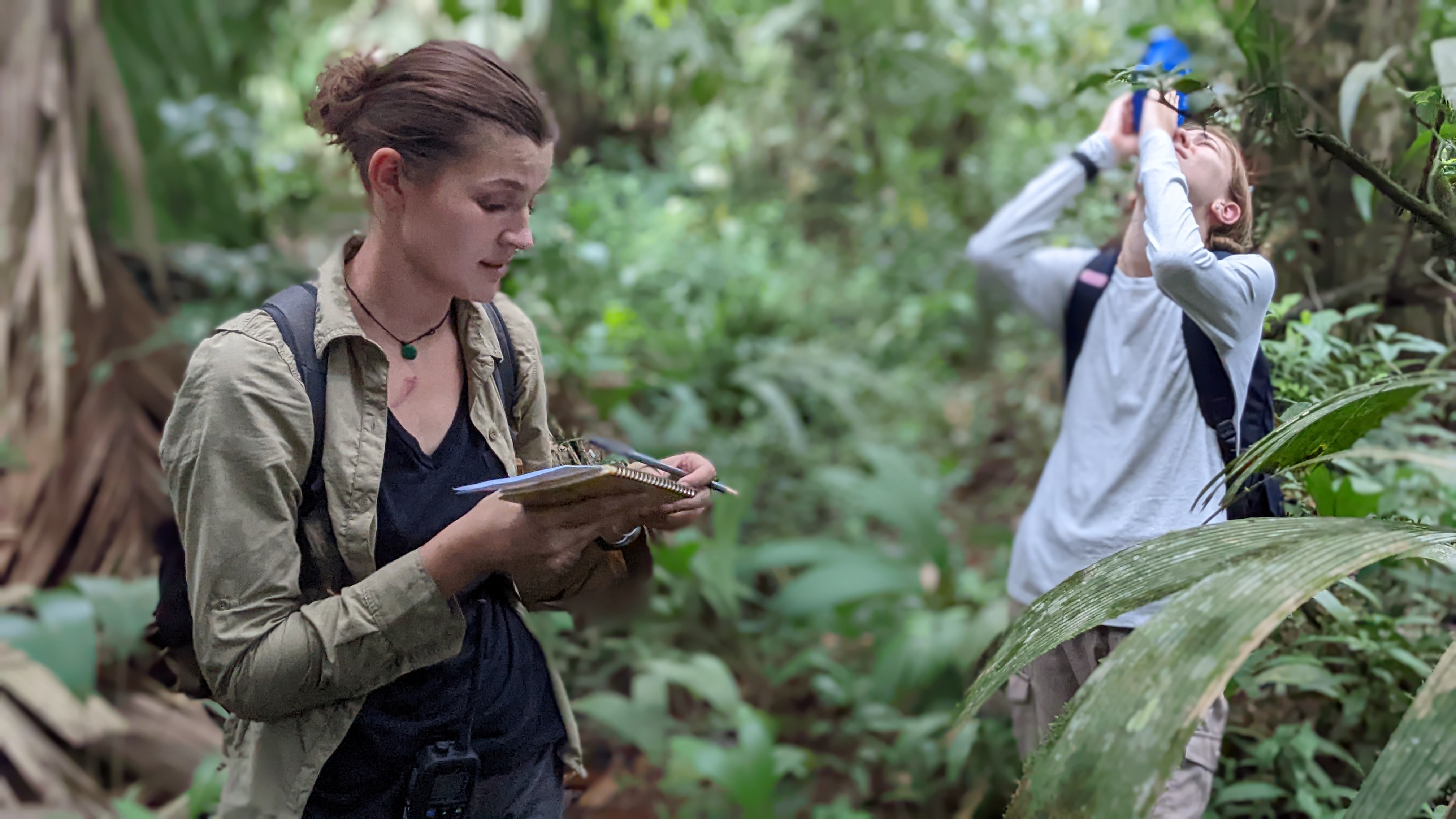
Getting There

We were each responsible for organising our own flight to San José. Although initially intimidating, this gave everyone the freedom to decide when they would like to arrive and leave, as well as from which airport that was most convenient to them. For example, some chose to travel to the country prior to the start of the Field Course, and international students were able to fly from home rather than having to travel to the UK first. I opted to travel along with Dr Bicknell, which made me feel less anxious about my first-time long-haul travel. We stayed in a comfortable hotel near the airport for one night, before travelling to the Caño Palma Biological Field Station the following morning. We stopped for lunch along the way for our first traditional Costa Rican meal, before finishing the last leg of the journey by boat! There were lots of wildlife-spotting opportunities on this boat ride, as well as views of the jungle paradise.
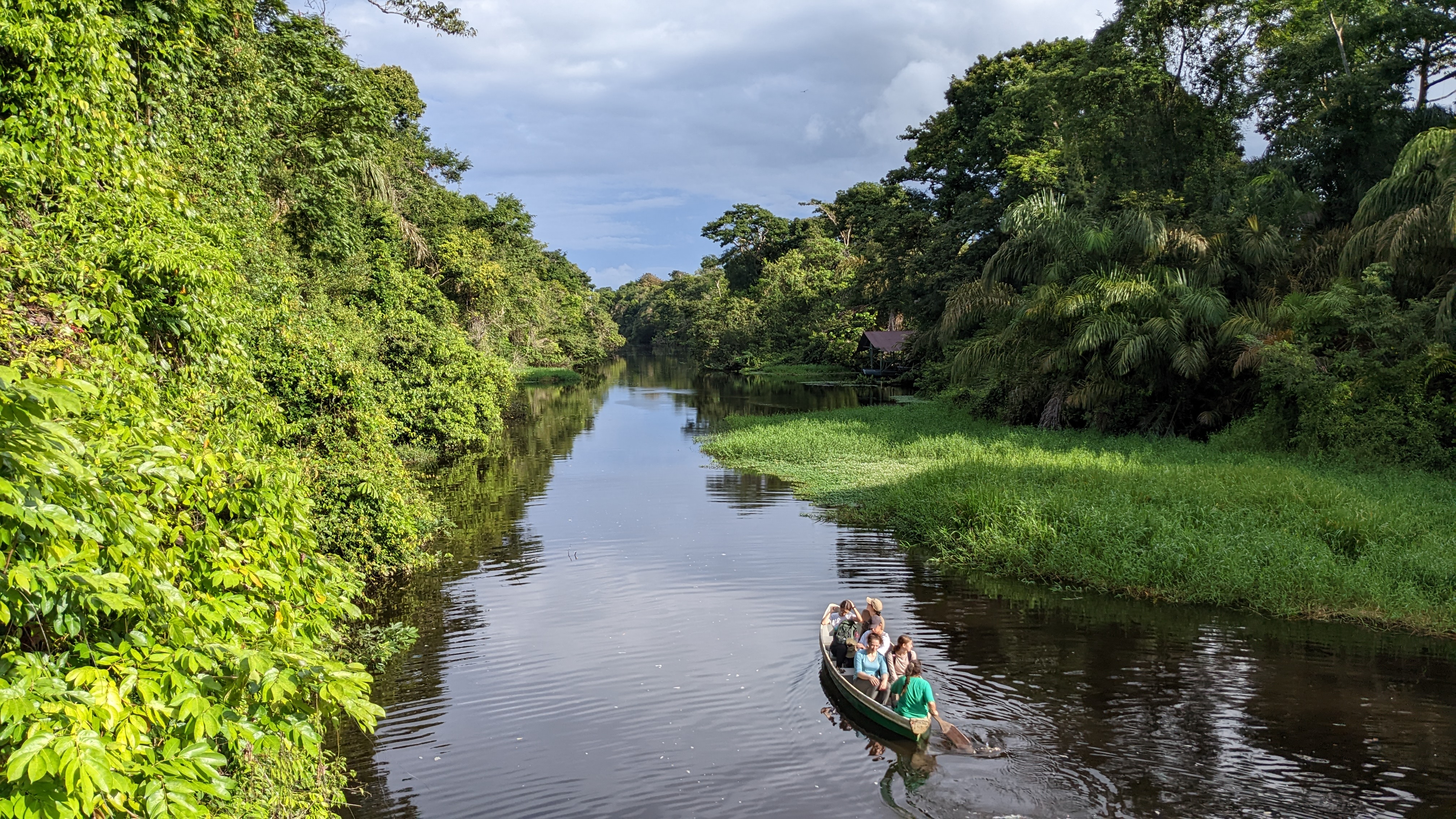
‘I had a fantastic time at the Caño Palma Biological Field Station. A huge THANK YOU to Jake and Helen for arranging this phenomenal trip. Now, I’m very eager to travel back to the rainforest when I finish my degree.’
Caño Palma Biological Field Station
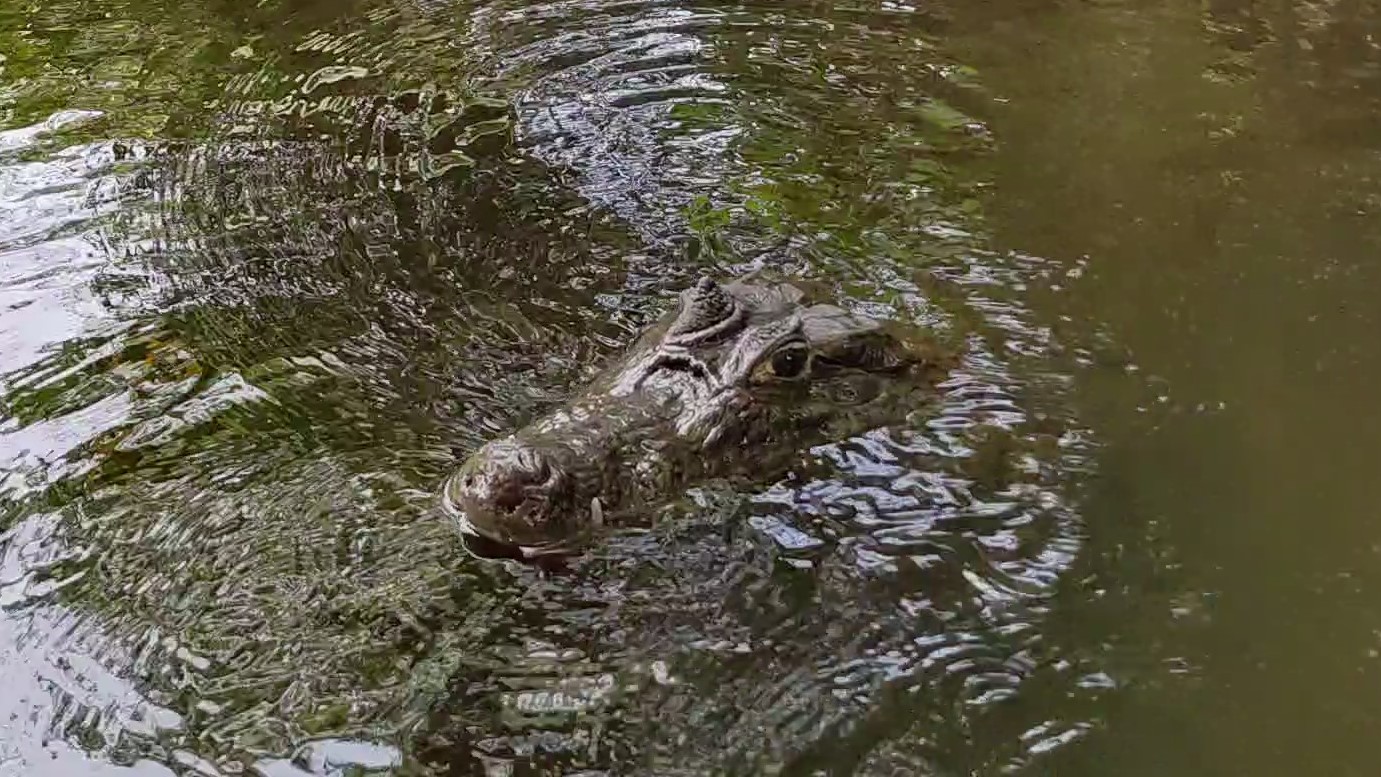
The Field Station itself is located in the jungle and is only accessible by boat. We stayed in basic dormitories with bunk beds, pre-hung mosquito nets, a fan, and some small shelves for clothes. Caño Palma also has a library, kitchen and dining area, flushing toilets, shower blocks, and a relaxing area above the dock. Students were separated into smaller groups to complete Mammal, Macaw and Caiman Surveys, Morning Turtle Census, Night Turtle Patrol, and Ad Hoc Activities.
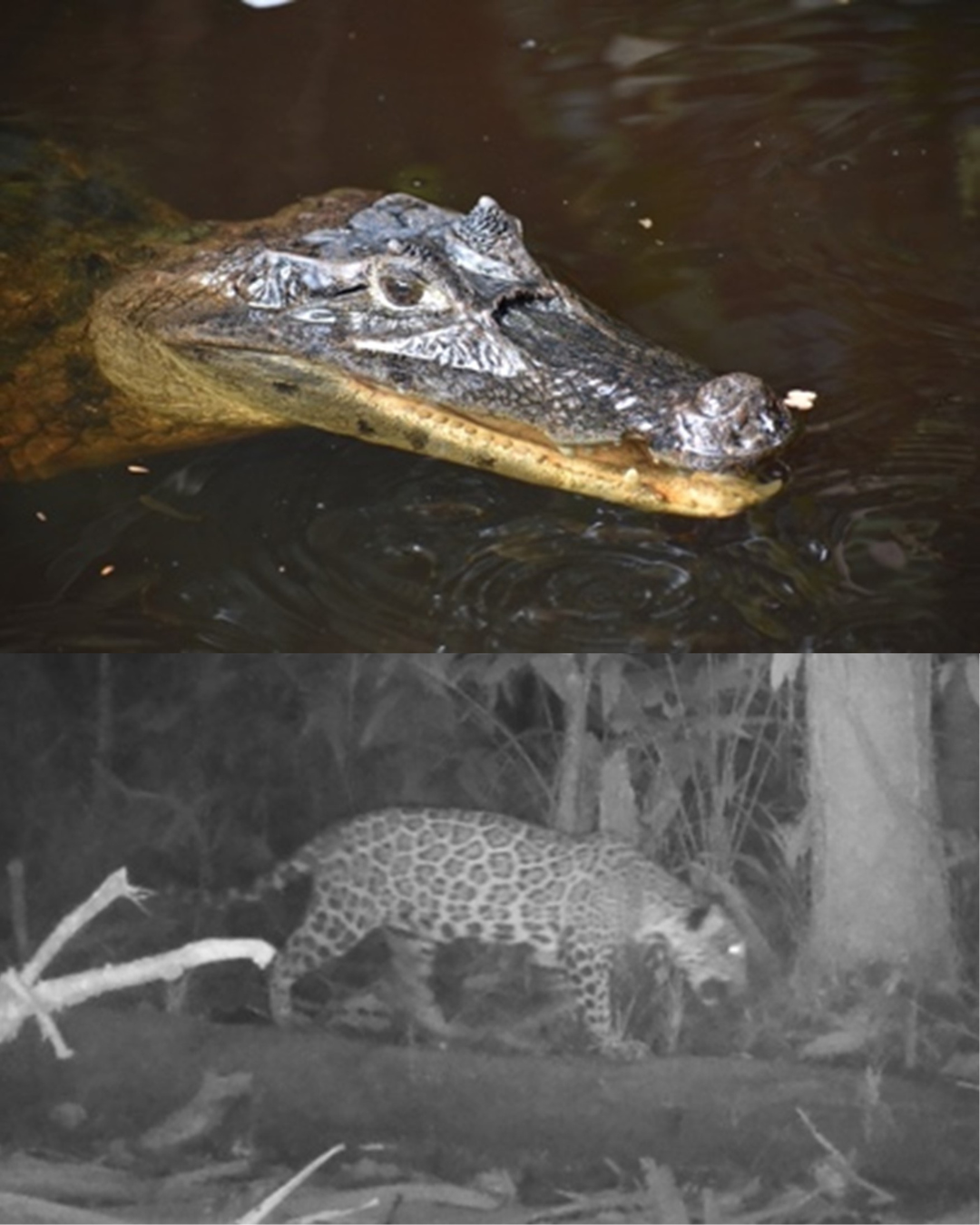 I had an unforgettable experience on the Caiman Survey, cruising along the river at night by torchlight, looking for the red reflective eyeshine of spectacled caimans. It started raining heavily with immense thunder and lightning, but we were dry beneath the roof of the boat and we felt as though we were in Jurassic Park! Dr Bicknell also led the nutrient cycling experiment for the following assignments, as well as the camera-trapping, which captured agoutis, armadillos, and a jaguar!
I had an unforgettable experience on the Caiman Survey, cruising along the river at night by torchlight, looking for the red reflective eyeshine of spectacled caimans. It started raining heavily with immense thunder and lightning, but we were dry beneath the roof of the boat and we felt as though we were in Jurassic Park! Dr Bicknell also led the nutrient cycling experiment for the following assignments, as well as the camera-trapping, which captured agoutis, armadillos, and a jaguar!
We all fell in love with jungle-living, which included falling asleep to the chorus of frogs and insects and waking up to the sound of howler monkeys roaring nearby. The Wi-Fi at the Station was generally reliable, but even on the occasions it disconnected, it was surprisingly refreshing to exist without screen-time. We were provided plenty of recovery time from the late night activities and I loved hanging out with the capuchins, that descend into the lower canopy in the middle of the Station around 7am to forage.
Night Turtle Patrol
Rain or not, students all witnessed Green Sea Turtles creating their nests, and some of us even counted the eggs as they were being laid. Patrolling the beach beneath the stars in the darkness, with the smiley-faced moon, bioluminescent sand that glowed under each footstep, and frankly, TURTLES nesting on the beach, made for an incredible night. The feeling of physically protecting each dinosaur-looking, sea-dwelling reptile (turtle) we encountered was indescribable and I couldn’t recommend this experience enough for future Conservation students seeking inspiration in the field.
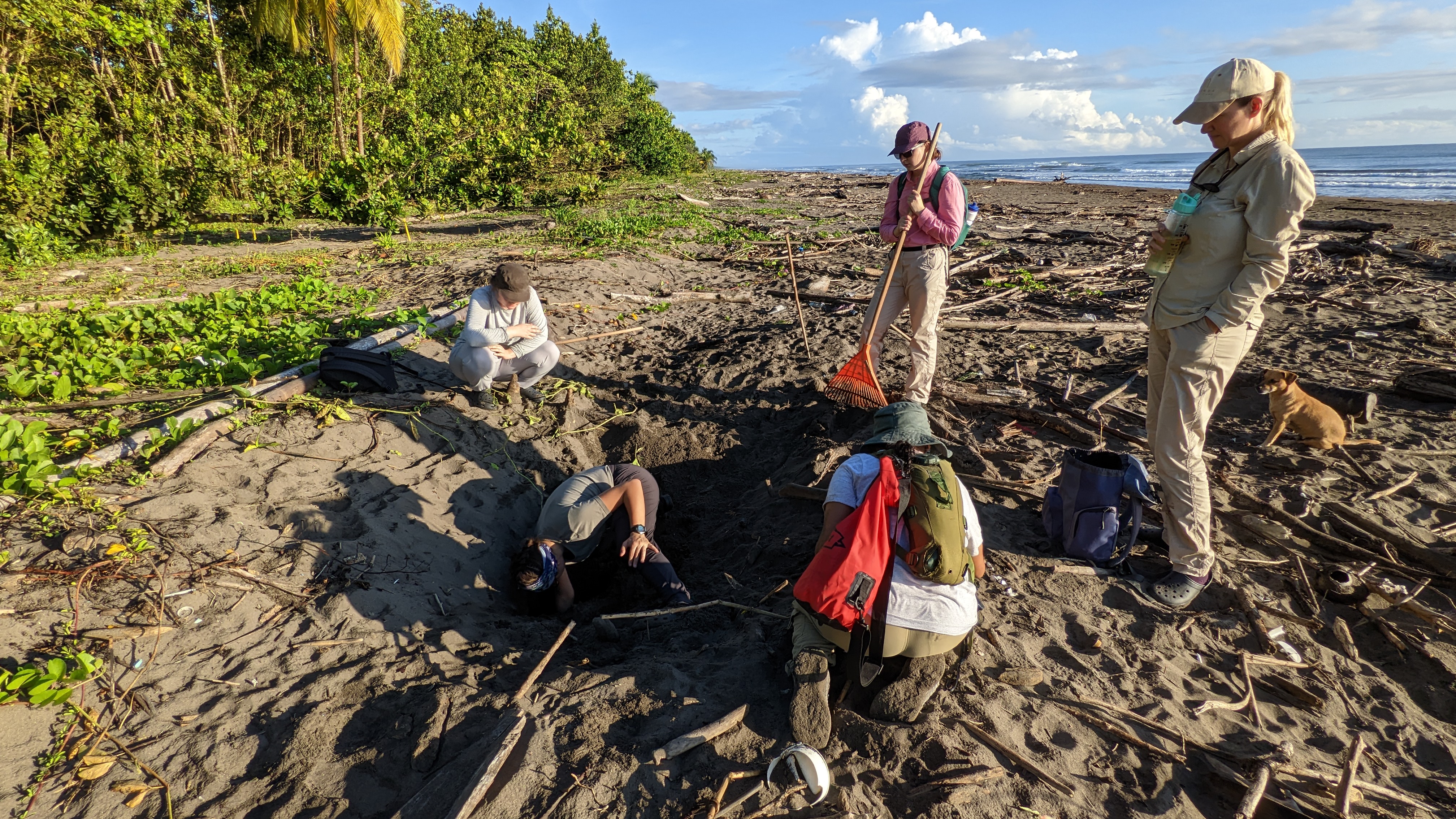
La Fortuna, Arenal Volcano, Waterfalls, and Hot springs
After the fantastic six days at Caño Palma, we said our goodbyes and travelled to La Fortuna; swimming in a waterfall, with water so crystal-clear that you could see the fish. We then hiked to the base of the Arenal Volcano, spotting sloths, toucans, and capuchins. This was an incredible adventure and finished off the fieldtrip of a lifetime, with a swim in hot springs (literally a hot river).
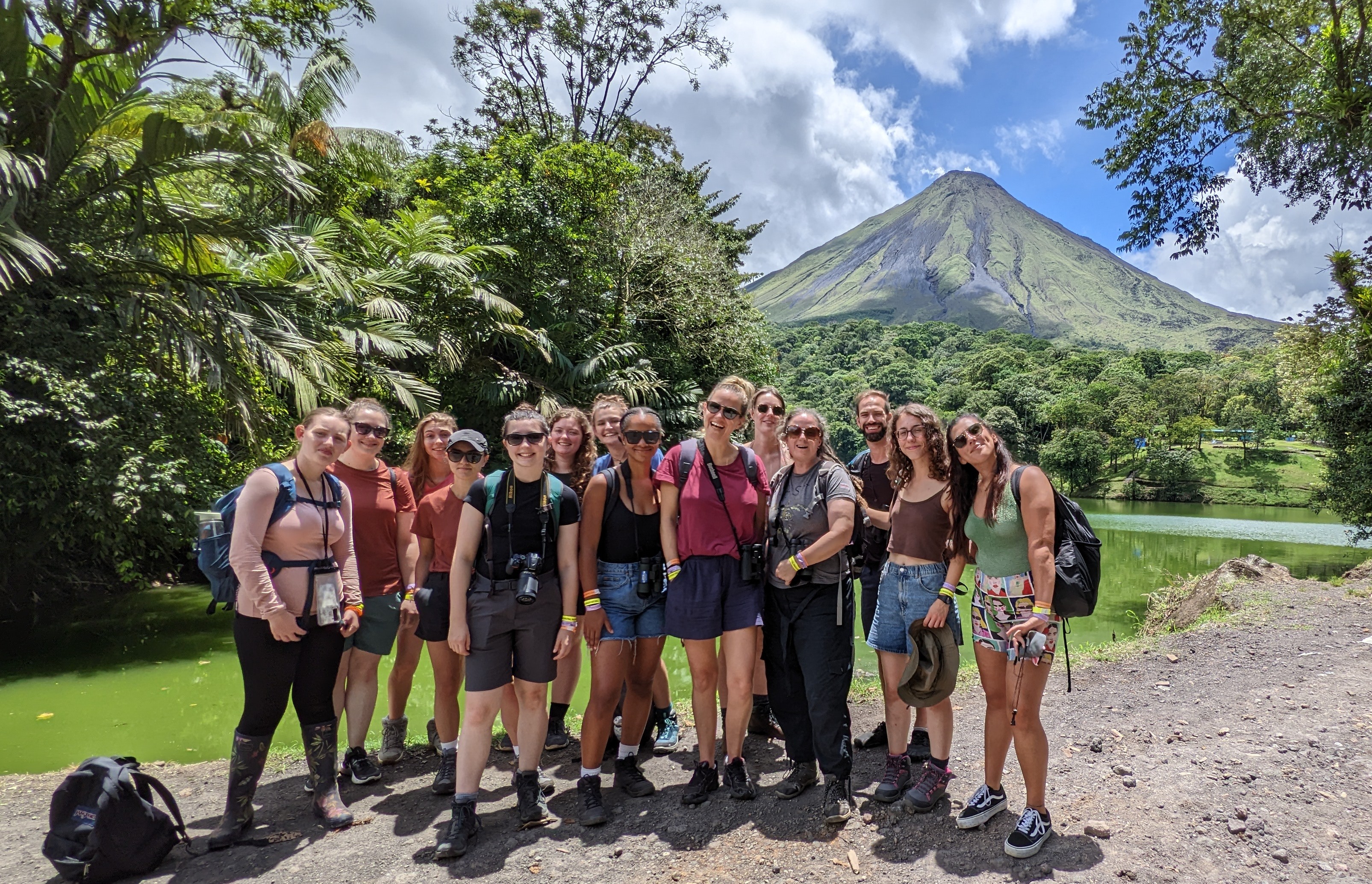
Field Food
Haina, the chef, accompanied us to Caño Palma, cooking us three, primarily vegan, meals a day; rice or lentils, beans, salad, plantain. As a non-veggie person, I thought it would be difficult to adjust to the plant-based diet but the food was genuinely great and we were treated to chicken (optional), pasta, doughnuts and chocolate cake during our stay.
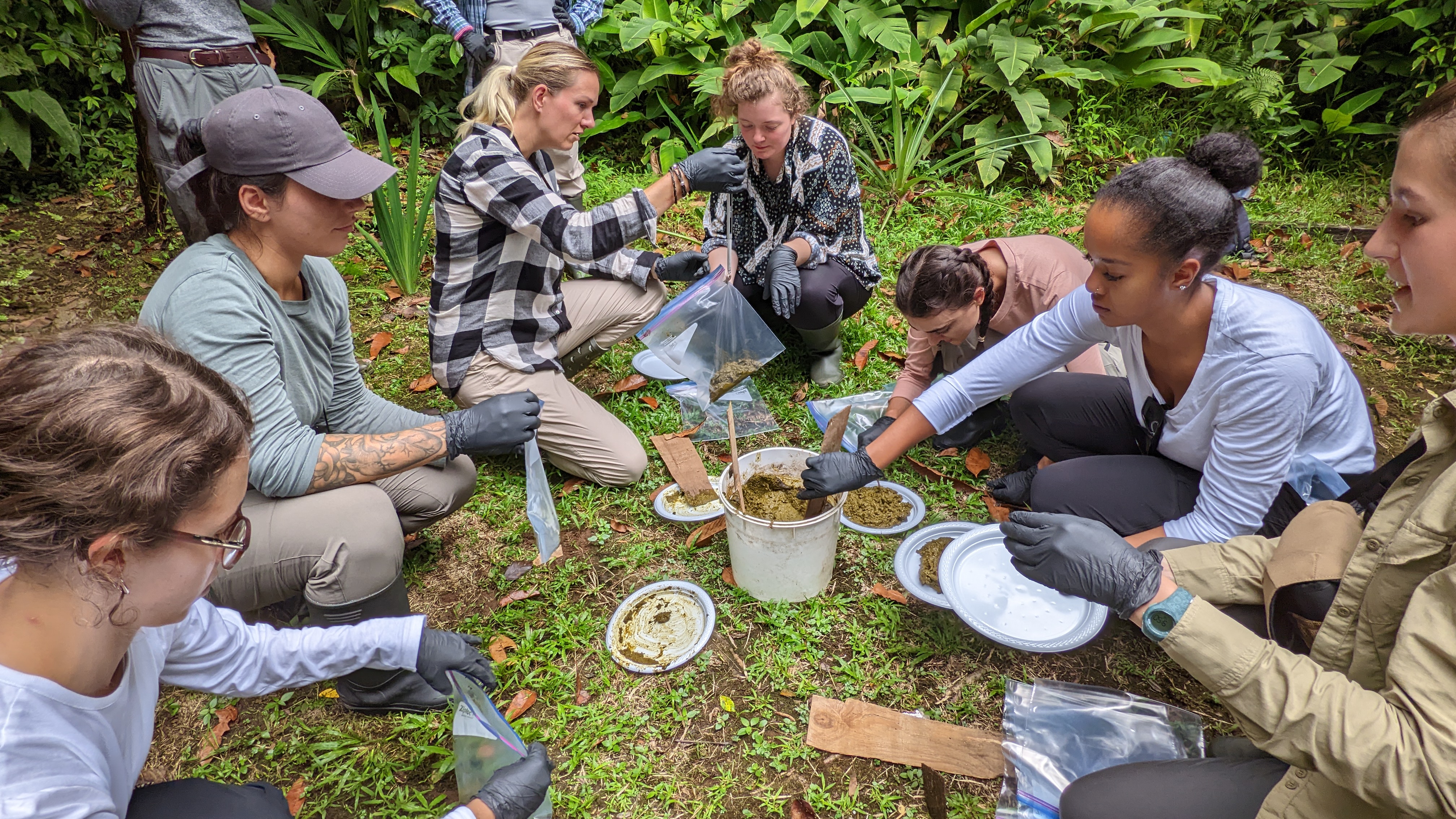
Culture Shocks
- Rice and beans for breakfast is normal – this took me a little while to get used to, but we all needed the energy for the exciting days ahead.
- You cannot flush toilet paper down the toilet in Costa Rica, and especially not at the Field Station. Instead, there are bins provided to dispose of used toilet paper. Admittedly, it took us a short while to adjust to this cultural norm (and lots of toilet paper was humbly fished out of the bowl)!!!
- Dogs behave as cats in Costa Rica. Each is owned and fed by a local family, but they have complete freedom to venture out into the jungle or walk the beaches, alone or in their packs. Generally, these dogs are incredibly friendly and it was challenging not to fall in love with all of them.
Top-Tips
- Do NOT leave food in your room to avoid curious ants!
- Bring re-hydration sachets to combat the humidity (you will sweat more than you ever have done before).
- Enjoy the diary-writing assignment. Find a peaceful area at the Field Station, grab some wildlife books and identify species that you observe.
- Communicate how you are feeling with Dr Bicknell and Dr Pheasey. It’s not unusual to feel low or unwell as you adjust to the new climate, food and living with others 24/7.
- Bring cameras (in dry bags). Wildlife is plentiful around the Station and there are great photography opportunities during ‘down time’ or Ad Hoc Activities.
- Wellies are an essential item. Not only is it rather muddy in the middle of the jungle in the wet season, but there are venomous snakes that we would like to avoid being bitten by.’
Jess Callaghan is studying for a BSc (Hons) in Wildlife Conservation (now named BSc Ecology & Conservation)




